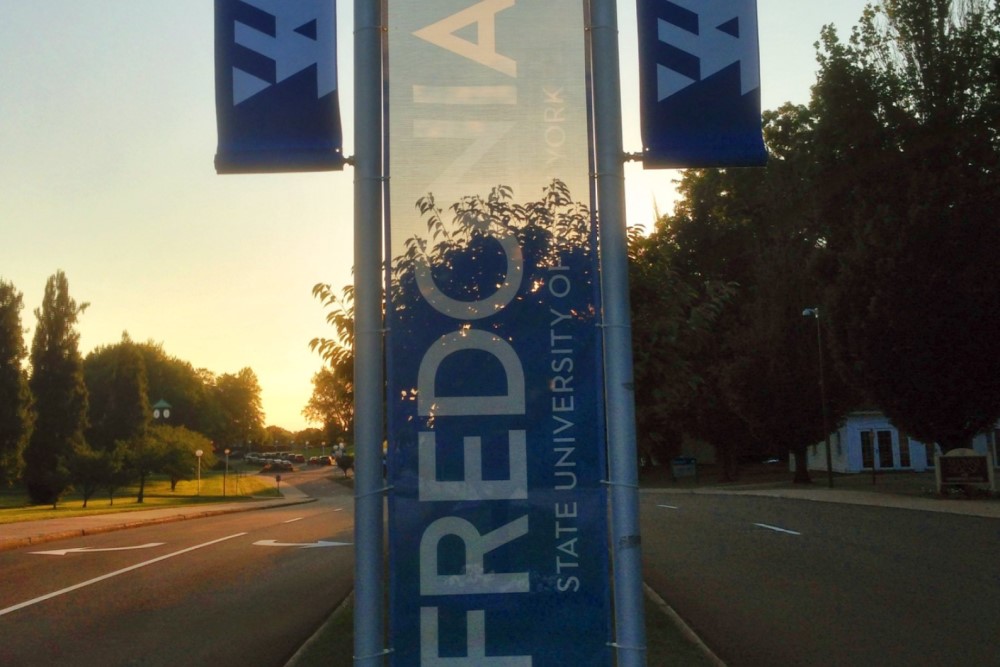Testing the Limits of Academic Freedom
On January 30th, 2022, SUNY Fredonia professor Stephen Kershnar was interviewed for the podcast “Brain in a Vat” in an episode titled “Sexual Taboos.” In the interview, Kershnar claimed that adult sex with children is not morally wrong. When asked about the cutoff point for when adult sex with a child becomes impermissible, Kershnar did not concede that such activity was wrong even with a child as young as one year old. He responded to the question by saying, “The notion that it’s wrong, even with a one-year-old, is not quite obvious to me.” The argument that he articulated in the interview is that we let children make all sorts of decisions for themselves: they decide what to wear in the morning, what to eat for breakfast, etc. We don’t challenge their ability to give free and informed consent to those things. He argues that sex is no different and claims that there isn’t anything significant about sex that changes the standards for what counts as giving consent. Therefore, if a child seems to be a willing participant to a sex act with an adult, it is not morally wrong for the adult to engage in a sex act with the child.
A short clip from the video circulated on social media and the content of the interview soon got back to administrators at SUNY Fredonia. Kershnar was reassigned pending an investigation of the case. As part of an official statement, the President of SUNY Fredonia said the following,
SUNY Fredonia is aware of a video posted online involving one of its professors. The views expressed by the professor are reprehensible and do not represent the values of SUNY Fredonia in any way, shape or form. They are solely the professor’s views. The matter is being reviewed.
In response to the news that action might be taken against Kershnar, The Foundation for Individual Rights in Education (FIRE) crafted an open letter in defense of Kershnar’s academic freedom. At the time of this writing, the letter has 115 signatories. A significant majority of the signatories are male and include such powerful and prominent figures as Peter Singer, Alex Byrne, and Brian Leiter.
The main argument in support of Kershnar is that the tenure system protects academic freedom, and such freedom is crucial to the functioning of democracy as well as to the give-and-take of reasons and evidence that knowledge attainment requires. The system depends on the broadly liberal idea that bad arguments and ideas are best addressed in open conflict with the articulation of other, more compelling arguments and ideas. It is only when people are free to express all ideas openly and without fear of reprisal that we can understand, as individuals and as communities of knowers, which conclusions the evidence or argument supports.
Those defending Kershnar’s speech may well find it repugnant, but may defend it as a matter of procedure, not of substance. We have a history of harshly punishing people with ideas that diverge from the mainstream. On many occasions, those ideas have turned out to be accurate (or at least more accurate than the views that preceded them). Once we start picking and choosing the thought expressions that will be cause for punishment, the domain of the exchange of ideas falls under the control of whoever is in charge of the punishment. Everything may seem fine when one is in agreement with punishment norms, but winds shift, and one day it is likely that the norms will be controlled by very different people with very different values.
The current political context only makes defense of academic freedom more urgent. For example, seven states currently have laws on the books banning teaching Critical Race Theory in local schools. In an additional sixteen states, similar laws are working their way through the legislature. New waves of book bans are surging through the country. Many states are considering legislation designed to hold public school teachers and their lesson plans up to unprecedented levels of scrutiny, up to and including laws that require video cameras in the classroom and laws that allow for parents to sue teachers if they dislike the material teachers are presenting in their classrooms. At a time when education is under attack and the country is grappling with rampant anti-intellectualism, we can’t afford to whittle academic freedom away. Academic freedom is a bulwark against fascism.
Regardless of whether one finds the arguments for academic freedom compelling, it is clear that there are also strong arguments on the other side of the case. The first argument acknowledges the fact that academic freedom is under attack but raises a concern for how protecting Kershnar in this case might potentially make things much worse. Many states have significantly weakened the tenure system by making it easier to fire tenured professors and giving the power to do so to entities outside of the academic community. Some states are pursuing getting rid of tenure altogether. The tenure system is supposed to protect the free exchange of ideas, which sounds like a lofty goal until it is used as a justification to argue for the permissibility of child rape. When administrators defend even a case such as this on the grounds of academic freedom, it might weaken support for the whole concept among the population in general and may make getting rid of tenure politically easier for lawmakers who were already inclined in that direction. Contributing to the firepower in this regard is the fact that Kershnar seems to have made his career as a sophist, engaging in the kinds of pursuits — attempting to make the weaker argument the stronger — against which Socrates frequently and famously argued. People may simply fail to see the value of a system that protects such activity.
Second, the arguments that Kershnar is making in the podcast aren’t just bad arguments, they’re bad arguments in support of a repugnant and potentially dangerous conclusion. If people accept the conclusion on the basis of the arguments and were already inclined toward pedophilia to begin with, Kershnar’s claims may serve to empower them in their conviction that their behavior isn’t actually morally wrong, it’s just commonly viewed that way by society. This could potentially increase the number of children who are victims of sexual abuse.
Third, Kershnar’s argument, and the existence of so much support for his case by so many (mostly powerful male) signatories, is likely to make victims of childhood sexual assault feel unsupported and potentially unsafe. Beyond a doubt, some people who feel this way will be students and colleagues of Kershnar. The situation may create a toxic work environment for colleagues and a distracting and challenging learning environment for students. A significant number of people who feel uncomfortable in this environment will be women, since 1 in 9 women are victims of sexual abuse as children. The number of men who report being victims of sexual abuse as children is 1 in 53. There are reporting challenges here, but there is a legitimate concern that the circumstances created by Kershnar’s comments will be extremely uncomfortable for many female students and faculty members in particular. In the podcast, Kershnar explicitly challenges the idea that the risk of doing serious long term psychological harm is significant enough to make sex with children wrong. Students and colleagues will both feel misunderstood and be misunderstood, since Kershnar undermines the significant damage sexual abuse can do to a person’s life and well-being. All this is occurring in an environment which gave rise to the MeToo movement in response to concerns that sexual misconduct was not being taken seriously.
There are other cases with a similar distasteful flavor. In 2019, Indiana University Bloomington economics professor David Rasmussen was subjected to similar scrutiny for publicly arguing that women are destroying academia both in the capacity of students and professors. He argued that geniuses are overwhelmingly male, and that the production of geniuses is stifled as a result of women on campus. Some argue that cases like Kershnar’s and Rasmussen’s are ripe for critique as demonstrations of the shortcomings of Enlightenment Liberalism. A society that highly prizes individualistic values such as free speech and academic freedom above all others often does so at the expense of the well-being of traditionally oppressed groups like women and people of color. People frequently use their freedom of expression not only to make unconscionable generalizations about members of such groups, but also to advocate for policies that do active and substantive harm. The most vulnerable are left unprotected.
In the end, this is an unfortunate case with no easy answers.





